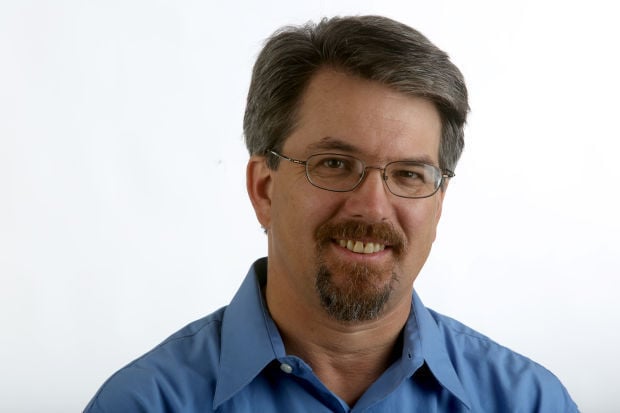Those who want to sow skepticism about global warming have been probing the University of Arizona for years, looking for weaknesses in the communications of local climate researchers.
Their tool: Arizona’s public- records law.
Last week, the university won a key legal victory against these attacks — but in a way that could harm Arizonans.
On March 25, Pima County Superior Court Judge James Marner ruled the university may withhold from release more than 1,700 emails to or from renowned climate scientists Jonathan Overpeck and Malcolm Hughes. They are two researchers who have become targets of global-warming skeptics — and their supporters in the fossil-fuel industry — because of an earlier leak of emails from a British university.
“When the release of information would have an important and harmful effect on the duties of a state agency or officer, there is discretion not to release the requested documents,” Marner noted in his ruling.
The standard is that the public agency can’t do so “arbitrarily or capriciously,” he wrote, and the university did not do so in this case.
Arizona’s public-records law is broad and applies to all the state’s universities, even though professors and employees of the university may not think of themselves as typical targets of a public-records request. The law is good because it allows for reporters and citizens alike to scrutinize the acts of government employees, including their spending of tax money.
Marner’s ruling will no doubt come as a relief to university researchers in Arizona. Overpeck, director of the UA’s Institute of the Environment, told me Thursday that releasing the data behind published research is an inherent and essential part of the scientific process. Not so, releasing the email communications that may include ideas and critiques irrelevant to the end product.
“The emails, in contrast, tend to be mostly unfinished work, incomplete work or deliberations between scientists that are necessary to reach the point where you can publish the work,” he said. “A lot of what’s going on in our email, think of it as our intellectual property. It’s the university’s intellectual property.”
A group called the Energy & Environment Legal Institute sued for the release of the emails in what is essentially a continuation of the “Climategate” conflict that began in 2009. That year, someone hacked into a server at the University of East Anglia’s Climate Research Unit and published thousands of email exchanges, including some involving Overpeck and Hughes, a regents’ professor in the UA’s renowned Tree Ring Laboratory.
The institute, it appears, is looking for something more to undermine the scientists who are showing that people are warming the planet.
That, of course, is not what David Schnare, general counsel for the institute, says. Schnare, who is also a Ph.D. environmental scientist and former EPA attorney, says releasing the withheld emails will offer a complete record of what Overpeck and Hughes really think, and whether they really have biases that affect their research.
I told him I suspected the institute was simply looking for anything it could use to undermine the research by scientists showing humans are warming the planet, even if it’s irrelevant to the science.
“There are people who have cherry-picked emails,” Schnare said, referring to the East Anglia leak. “The question is, how badly did they cherry-pick them?”
“I’m not out there trying to find something I can cherry pick,” he said.
In the lawsuit, Schnare refers to Overpeck as being prominent in the “cause” of global warming, including “activism for environmental pressure groups.” The UA argued that being forced to release the emails in question would have a chilling effect on academic freedom.
The institute’s pursuit of the UA emails is part of a pattern. It and other groups have pursued similar email batches from climate scientists in Texas, Virginia, Alabama and Delaware. Michael Halpern of the Union of Concerned Scientists documented the pattern in a February report and called it “harassment” and “bullying.”
Yet, as bad as the motives of some record-requesters may be, the danger of withholding entire categories of emails from release is probably worse. I asked UA spokeswoman Andrea Smiley what the standards are for releasing or withholding emails that are requested, and she described it as a process of weighing the risks of release against the benefits.
The risks are higher when the emails or other communications are from early in a researcher’s process.
“With that kind of information getting out to the universe, they could draw their own, probably wrong conclusions. They don’t have all the details,” she said.
It’s true, people can misuse or misunderstand information. In fact, distortion and misdirection are a common part of public debate in the United States. The thing is, the burden is on the consumer of information to figure that out, not on the keepers of information to protect us from it.
Also, the director of the UA School of Journalism, David Cuillier, pointed out that the portions of emails that are truly intellectual property or private can be redacted by the public entity that holds them.
“They should not be keeping all the emails blanket secret,” said Cuillier, an expert in public records who is the national freedom of information chair for the Society of Professional Journalists. “They should be blotting out the information that would cause harm and let the rest through.”
In a free society, we have to be trusted to hash out what the information really means.





